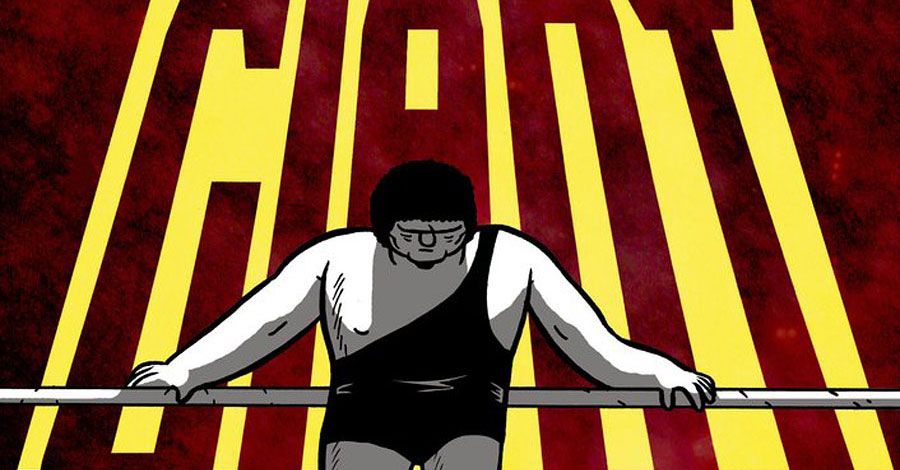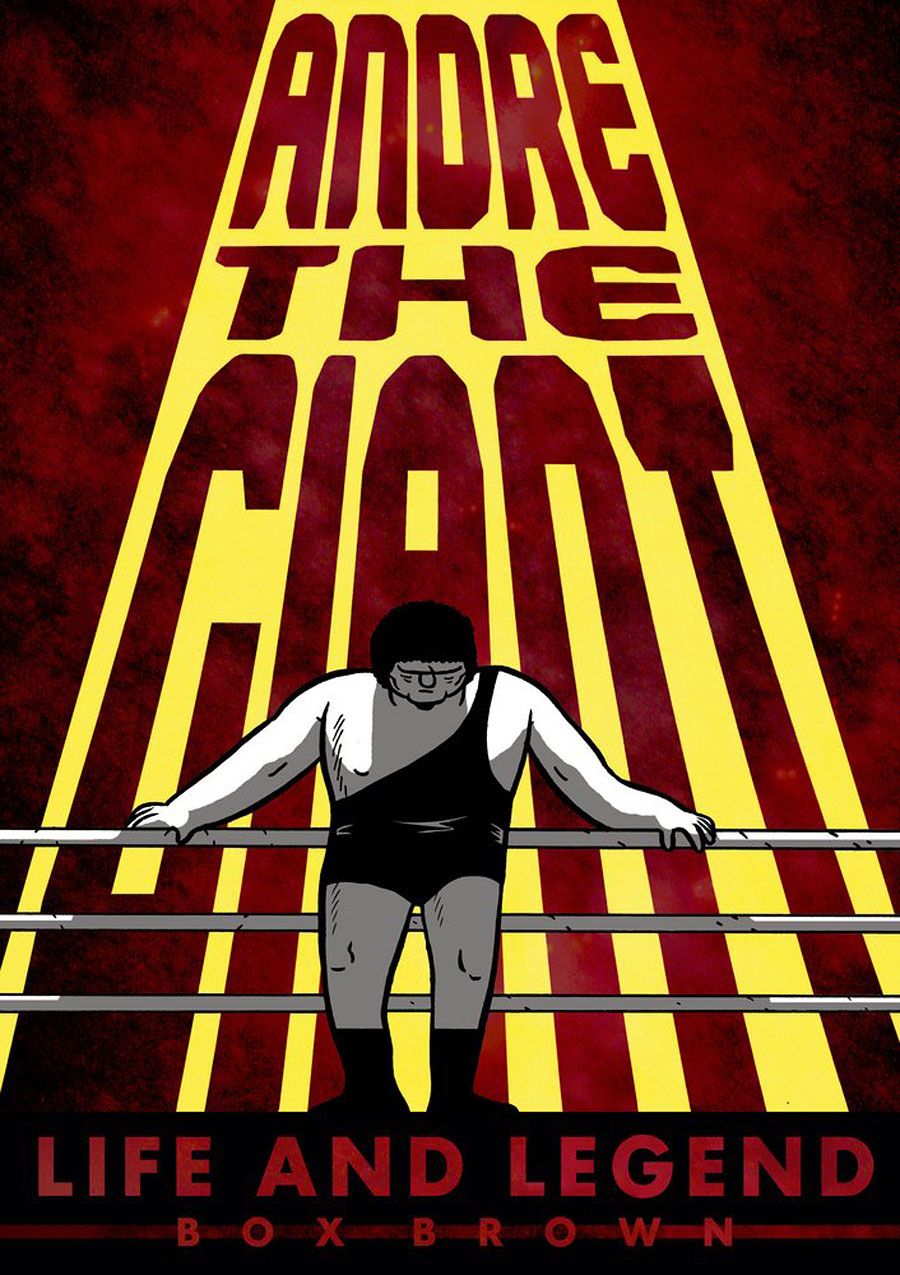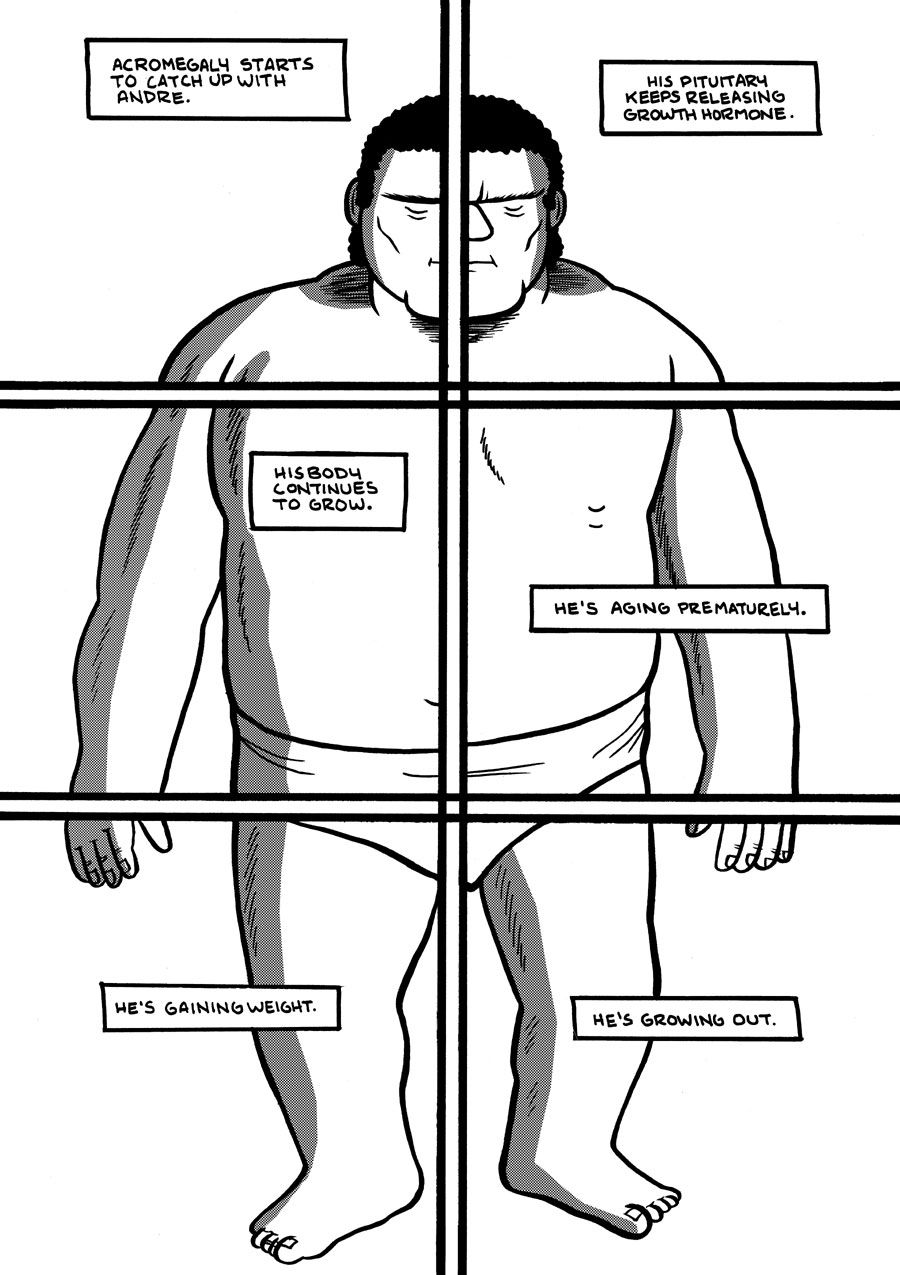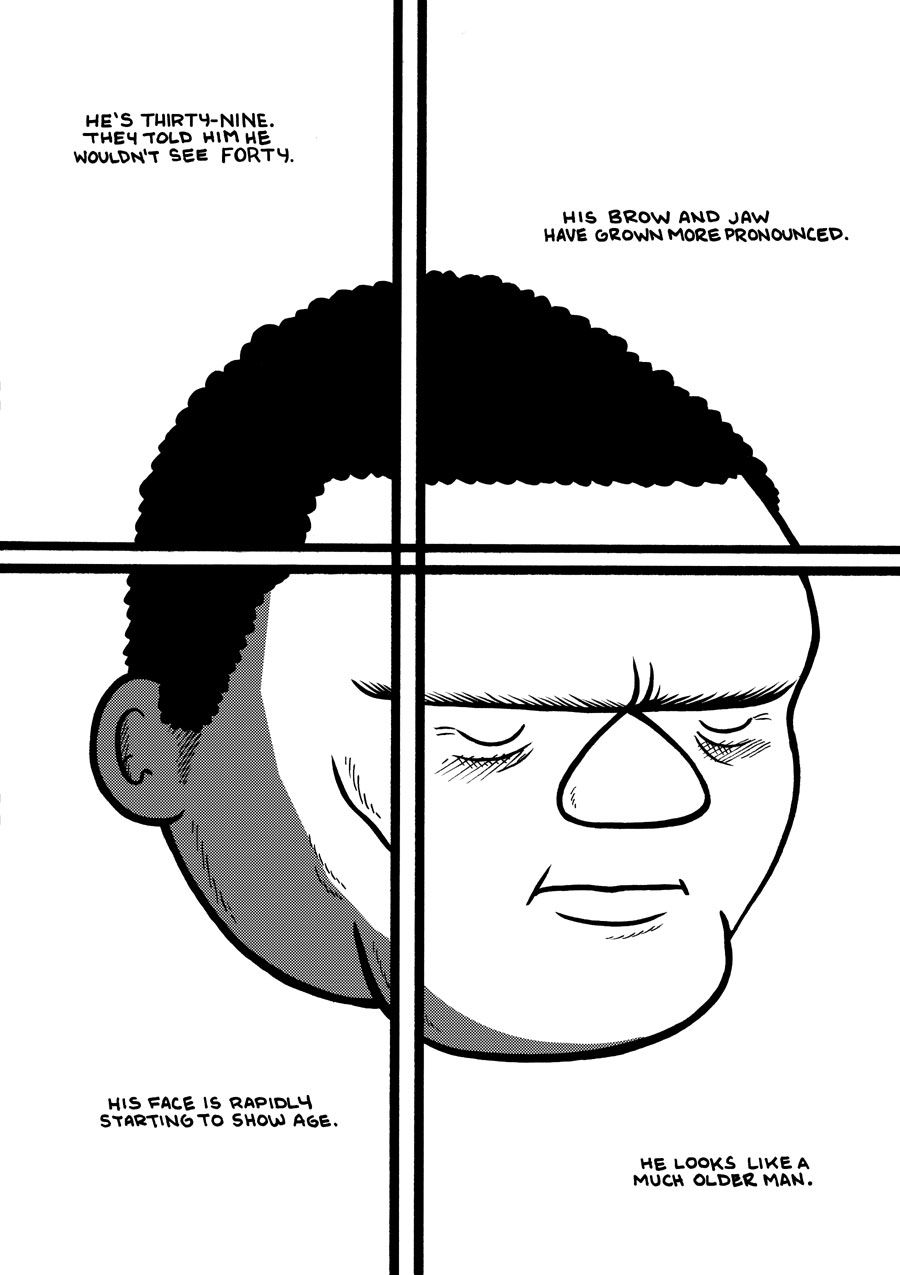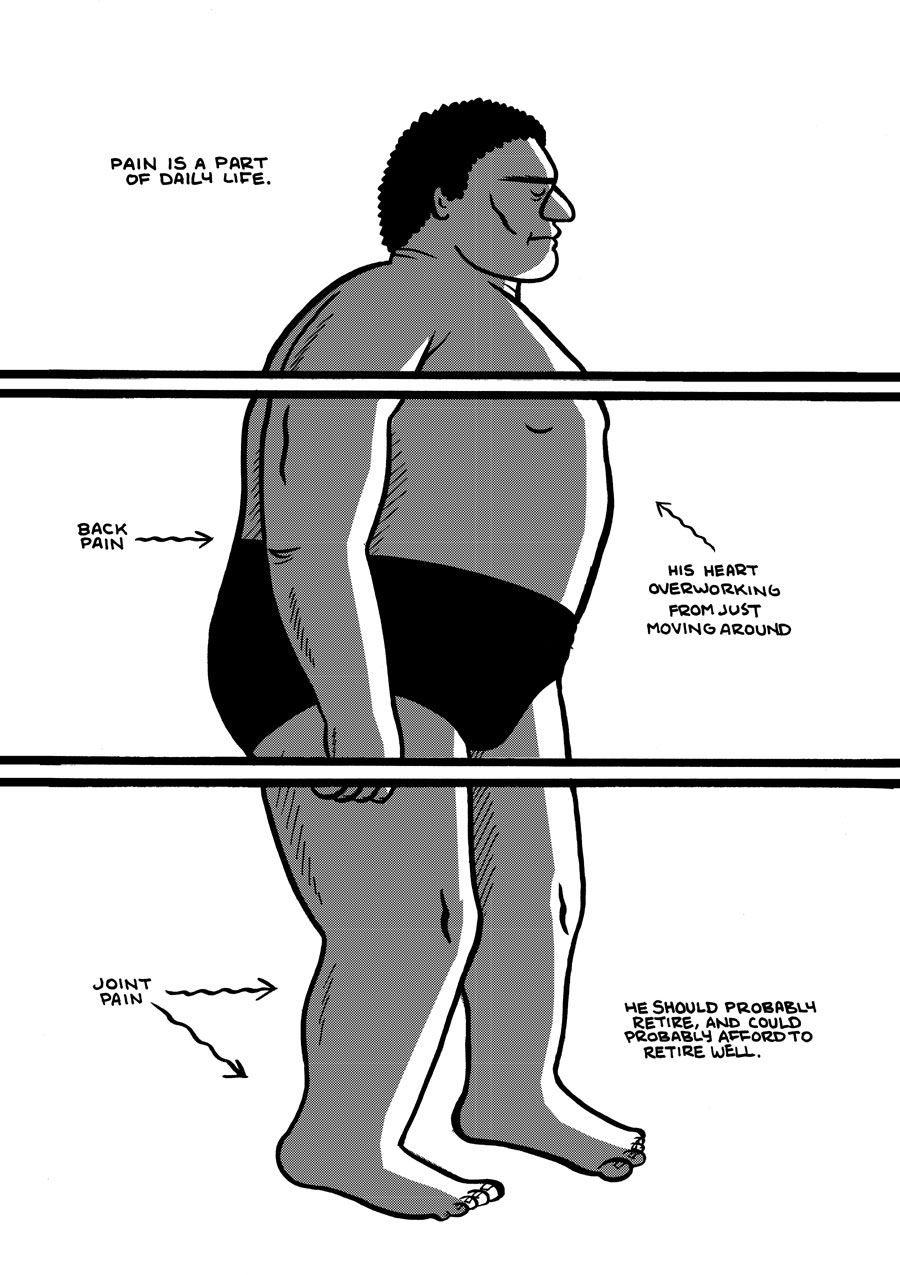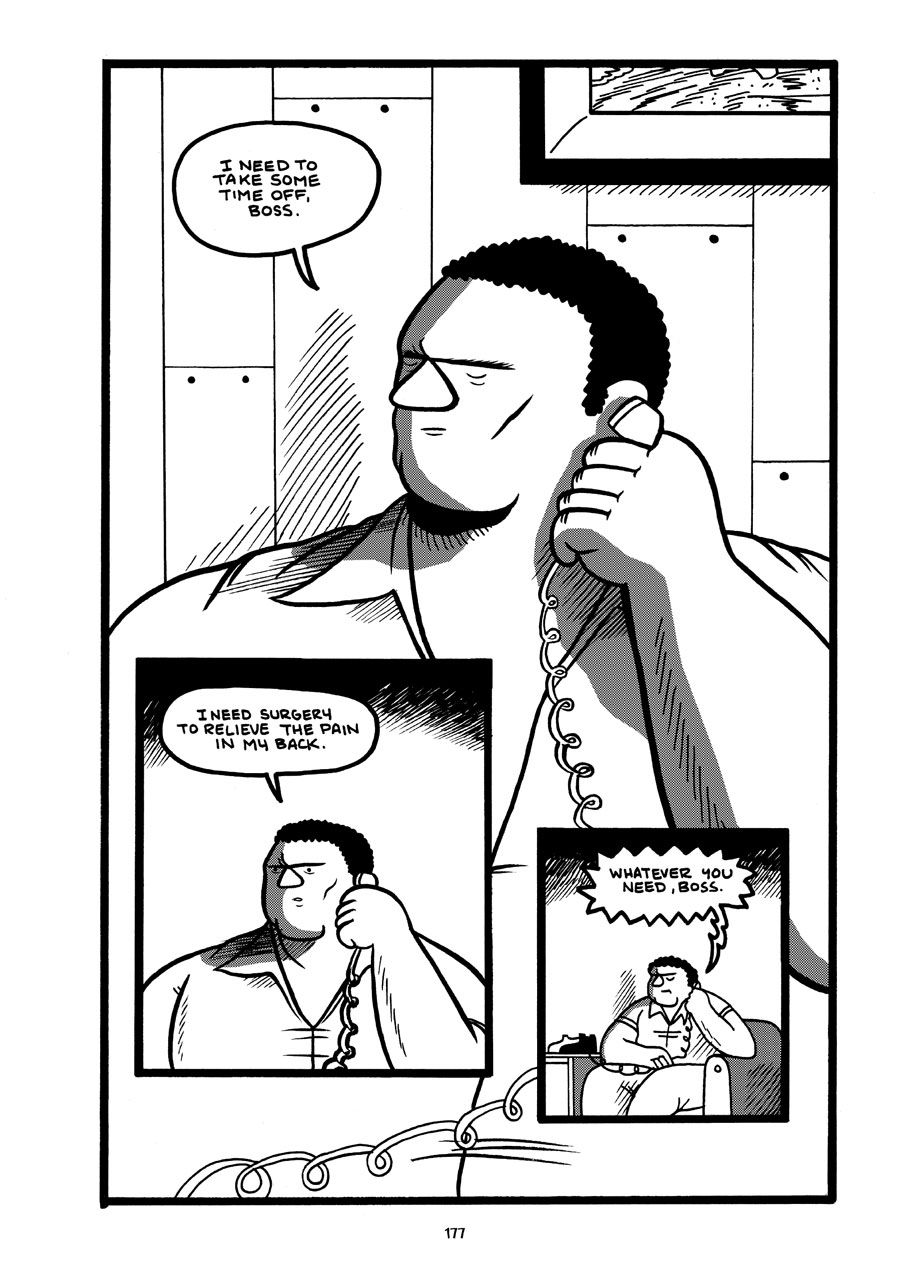I dressed up as the Ultimate Warrior when I was little, and my brother and I would wrestle on the living room floor while WWF blared in the background. And brother, he was all about Hulkamania, so our matches were pretty damn exciting. We each had our hero, our favorite. But as far as Andre the Giant was concerned, we just knew him as the villain. He was the villain in the ring and he was the villain on the screen. This unmovable force, this unshakable colossus. But that lasting stereotype, that overly-familiar caricature, lasted only until I read Box Brown's soulful graphic novel "Andre The Giant: Life and Legend."
Biographies are tricky, problematic creatures. Not only does the subject have to have an interesting character, but that character must do interesting things. What Brown has done in his book is present a sensitive man, a professional who cared about his career, and a misunderstood giant, all wrapped up in one person. He presents Andre as a sweet, good-natured human being who, if he wasn't jet-setting off to his next match in the ring, or making movies and doing television appearances, was suffering from physical and emotional tribulations. This book is humanizing, in the best way possible.
EXCLUSIVE PREVIEW: Box Brown's New Anthology "Number"
Brown spoke with CBR about his research, the draw of pro-wrestling and his process in making the graphic novel. "Andre The Giant: Life and Legend" releases early this month, and is worth your time to read -- even if you prefer warrior face paint or ripping off your yellow muscle shirt.
CBR News: Box, you could have arguably done a biography on just about anyone. Why Andre the Giant?
Box Brown: I think this project stemmed from a deep, personal connection with professional wrestling as an artistic medium and subculture. I would imagine most biographies stem from personal obsessions. I can't say that I was personally obsessed with Andre from the start, though. It was more an obsession with wrestling culture, and seeing Andre and his career as the perfect person to guide the reader through it. The actual impetus to make comics came from reading about Andre getting a ride to school from Samuel Beckett. I just thought that had to be comic.
The pathos in the book, man -- it was so lovely, honestly. You're just so invested. Can you tell me about some of the research that went into creating the book?
The research in many ways was my favorite part. I watched a lot of so-called "shoot" interviews. A "shoot" is a wrestling term meaning "legitimate." I watched a 13-hour interview with Ric Flair that garnered exactly nothing that actually went into the book. I was able to talk to a few people directly. I was briefly friends with Blackjack Mulligan on Facebook.I made a few phone calls to the surgeon who worked on Andre's back (never did get him on the phone, though). One piece of information that was really helpful was his win/loss record. This is somewhat ironic insofar as wins and losses mean almost nothing in professional wrestling, but it helped create the timeline of his life. I could figure out when something took place because the person telling a story would mention a place or a date or event, and I could line it up with where Andre was in his win-loss record.
He won almost every single one of his matches, incidentally.
Tell me more about chatting with other pro-wrestlers about Andre. What was that like? I'm really interested in their personalities versus their stage personalities.
It's funny -- one guy I talked to, Bill Eadie, aka Ax of the tag team Demolition, seemed very genuine and sweet. He was a very friendly, straight-shooting, normal guy. He happens to be a special education teacher now.
Blackjack was very difficult to read. He was really forthcoming with stories about Andre, but it was quite difficult to figure out where his character ended and the actual person began.
Was there any story that didn't make into the book?
There were a few things that got edited out of the book, but nothing too big. One story that got cut was from Larry Zbyszko's book. It was about Andre, Larry and the boys riding on a bus in Japan. Larry and Andre were playing cards, and suddenly, the driver lost control and everyone went flying, including Andre. Luckily, no one was hurt, but Zbyszko said Andre was the one who screamed the loudest.
Writing vs drawing -- which is harder when you're doing everything?
The two are inextricably tied. I couldn't write a comic without drawing it. If someone asked to see a script before I drew a comic, I couldn't do it. I'd be forced to draw the comic in thumbnails and then transfer it back to a written script form. Sometimes the drawing part (usually the inking part) can be really fun and relaxing, like you're dancing, almost, but it can be equally as frustrating.
How did this book end up at FirstSecond? Was it the natural choice, was it serendipitous?
You know, I had met my editor Calista [Brill] a few years before I started working on Andre. I had done about a 100 pages of the book, which got discarded/redrawn. I sent it to Calista, and she (somehow) believed in the idea. As much as the business can be a struggle sometimes things just work out and everything kind of falls into place and it makes it feel easy (for a very, very brief moment).
Besides Andre, who's your favorite wrestler?
Well, when I first got into wrestling it was probably The Hulkster, or the Ultimate Warrior. Since then, I've come to appreciate many, many more wrestlers for many different reasons. I think if you asked me right now who the best guy in the business was of all time, I would say probably Bobby "The Brain" Heenan. He wasn't known as a wrestler (though he could work with the best); he was a weaselly manager and eventually just an announcer. But, when Hulk Hogan was at his peak, they could put any guy with Bobby Heenan and that guy would become the top heel (badguy). He was an instrumental wheel in the machine of pro-wrestling as we know it.
Do you think pro-wrestling has a chance to ever capture the magic it had in the 80s and 90s?
Oh, sure -- definitely. I have no doubt that some wrestler will eventually break into pop culture the way the Rock has again at some point. The whole monopoly the WWE has on the business now is probably not good for the art-form so, it'll be interesting to watch unfold.

